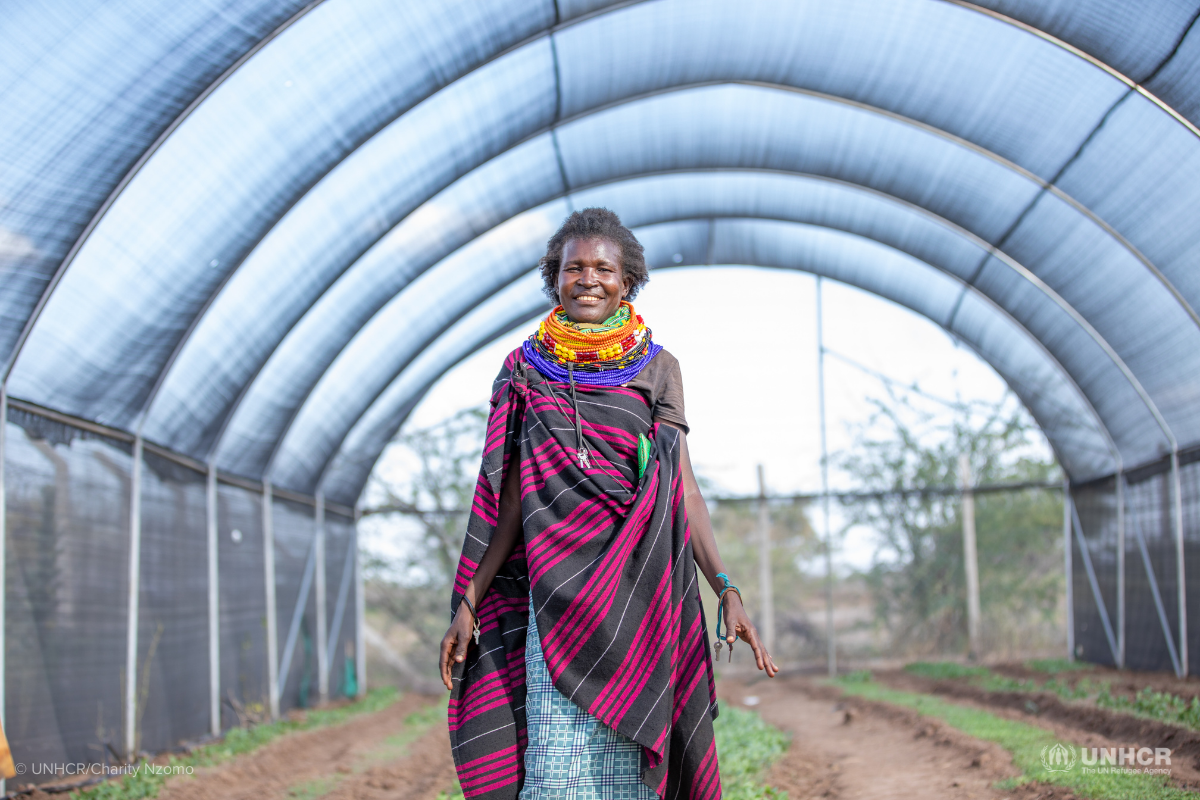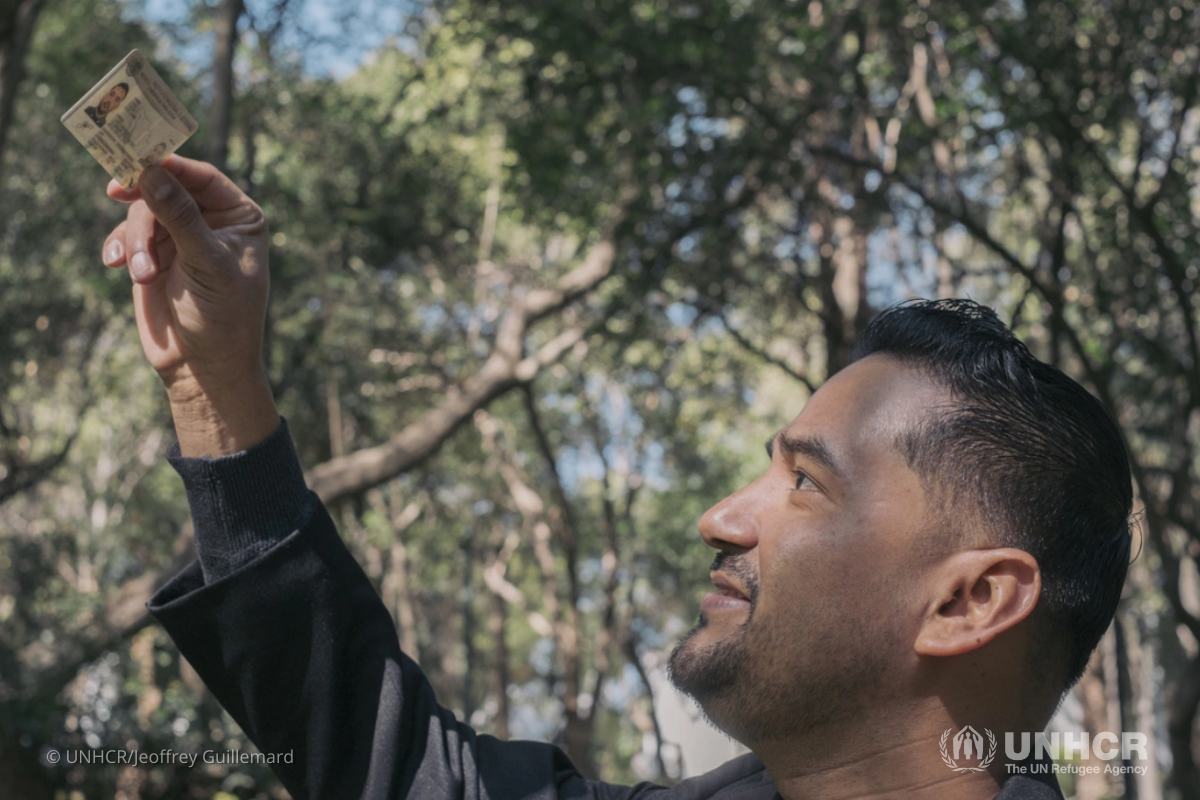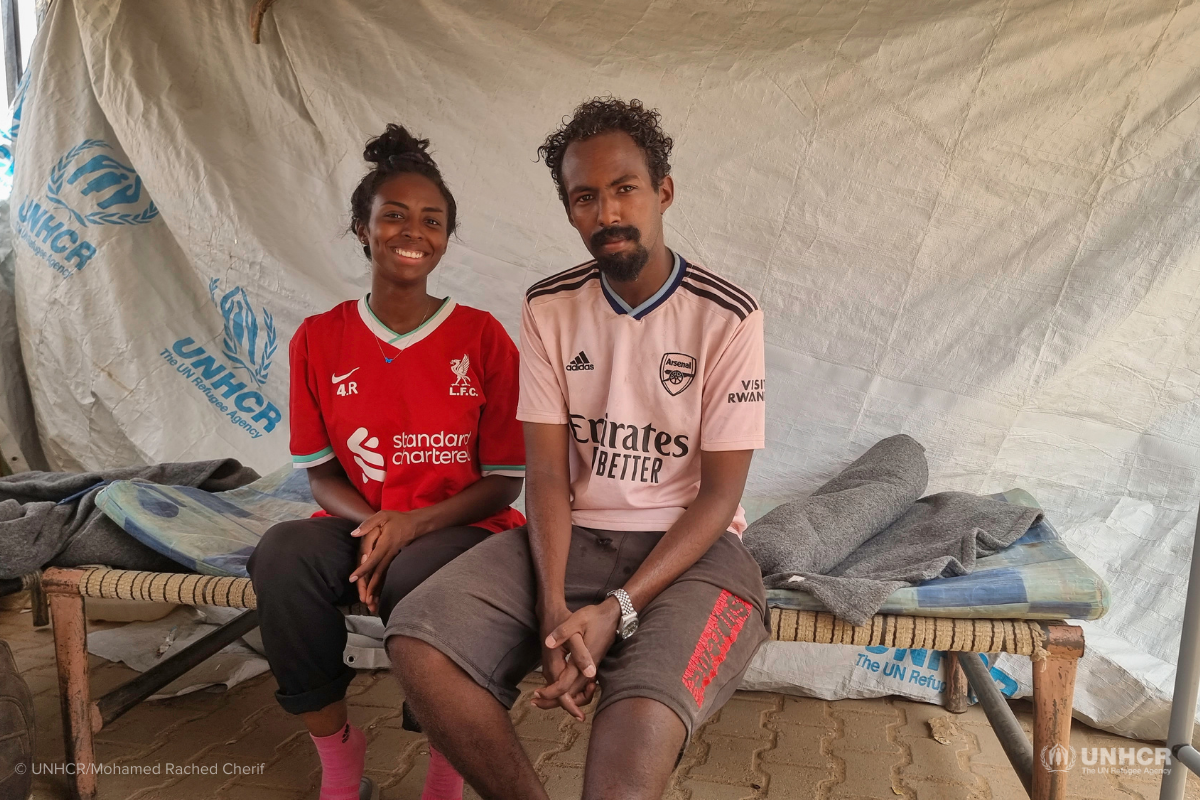Meet Halima: former refugee, Truman Scholar and advocate for women’s economic empowerment
Every day in schools across the United States, young people struggle with building self-confidence and embracing their identity. Now imagine what it’s like for a young refugee in a new community, unfamiliar with the language and with little understanding of the culture. For Halima Hamud — a refugee from Somalia whose family was resettled to Boise, Idaho when she was in the 4th grade — this was once a reality.
“I used to hide many parts of myself, parts of my identity, especially being a refugee,” Halima shares, talking to us from her former English classroom at Borah High School in Boise, Idaho. “I would hide the fact that I'm Muslim,” Halima continues. “I remember taking off my hijab, going to class with my hair out with jeans, and completely throwing away many parts of myself.”
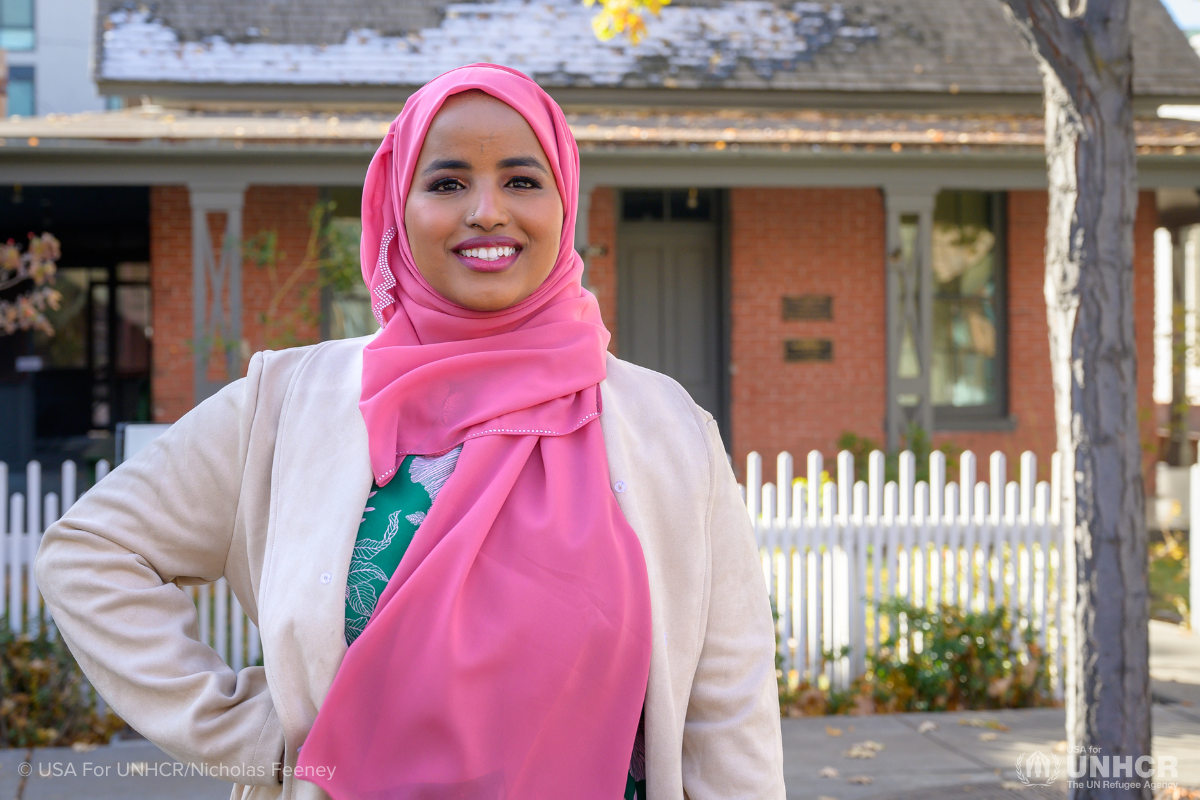
Halima recalls being unhappy and frustrated with her choices as a young person but also being conflicted about the powerful pull to fit in. While she was uncomfortable at school, at home Halima had the support of a family full of strong women. Growing up in the Dadaab refugee camp in Kenya, Halima witnessed her mother work as a midwife while her sister worked in the medical clinics in the camp.
Inspired by the work of her mother and sister and the community she found in high school, life changed dramatically for Halima.
“I saw people that looked like me, people that had the hijab on,” Halima says. “And so, I put back on my hijab, and I think [that’s] when I started celebrating myself – when I started embracing my identity, and that's when I was so powerful…and so confident.”
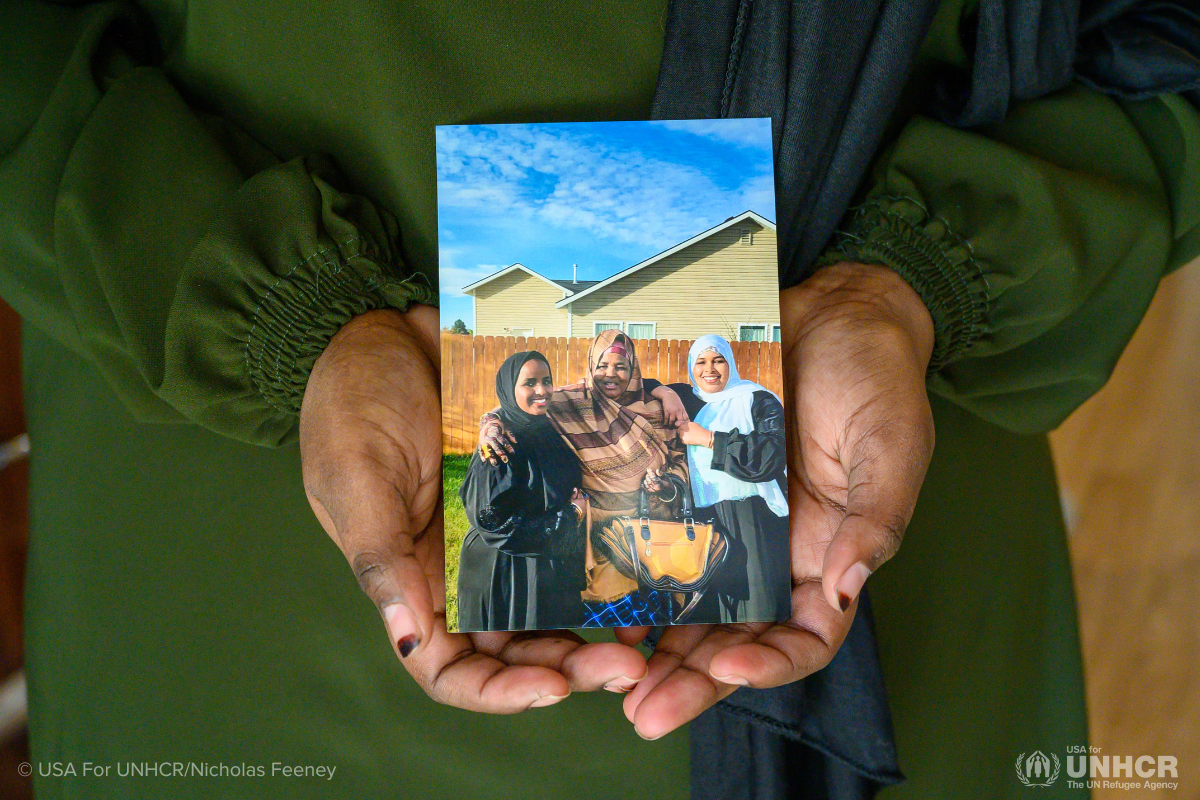
In high school, Halima also met Pam Atkins, an English teacher and AVID program administrator — a college preparatory program for high-achieving students that Halima was enrolled in.
Pam shares that the years Halima was at Borah were special. “At the time our high school was serving all incoming refugees to the Boise area,” Pam proudly explains. She recalls at one point there were more than 40 different nationalities represented at the school.
At Borah, Halima was building the skills and acquiring the experiences that would fuel future advocacy work. She was a student participant on a council in the Mayor’s office and involved in other community action groups. According to Pam, Halima’s “superpower [is] being able to plug into what is happening right now but also always having this vision for herself out ahead.”
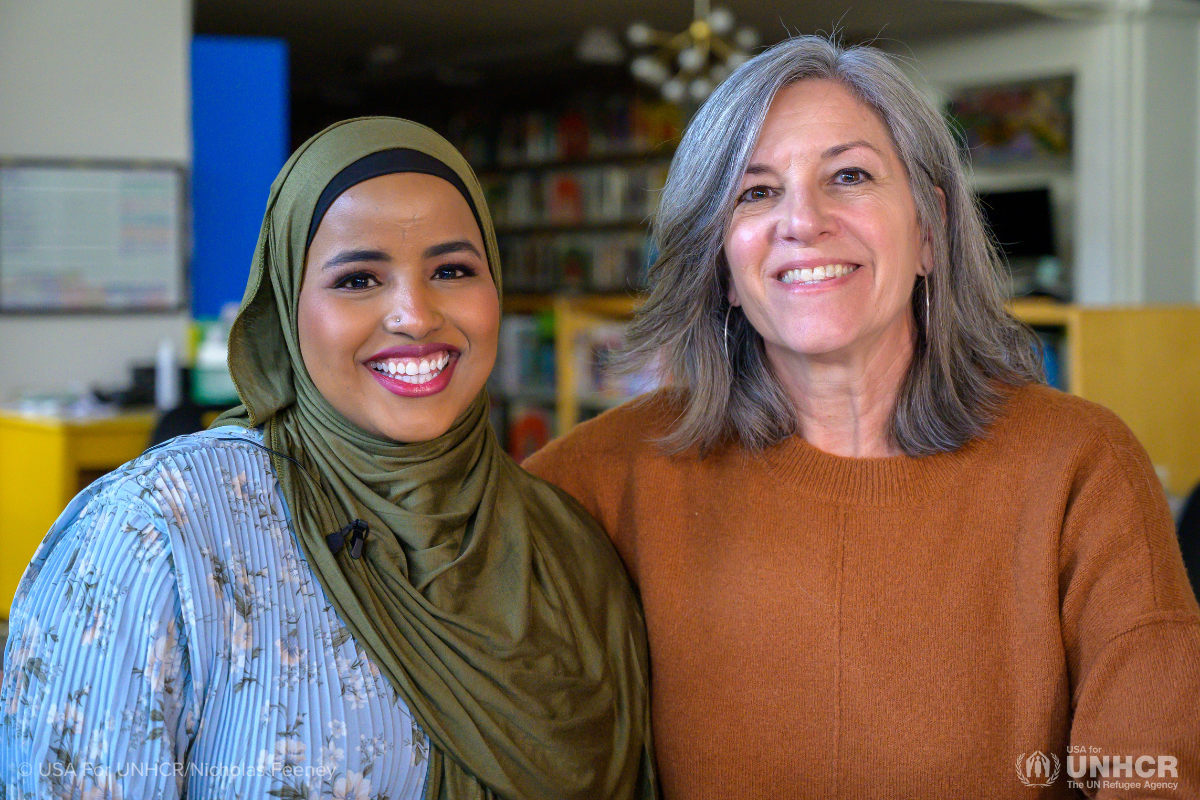
As an undergrad, Halima would once again face the challenges of finding community. As a Political Science major at Boise State University, she recalls often being the only black Muslim woman wearing a hijab in class.
“I wasn't hiding parts of myself and that really helped me be strong in the world,” she shares. “[I know] the power that I bring to the table and the wisdom that I bring to the table because of my experiences as a refugee.”
Finding strength in her confidence, Halima began to understand that she had an important role to play for other young refugee women. Drawing on her own experience, Halima focused on how to advocate for others and break down barriers to representation in spaces that are not always welcoming to people with her background.
“Representation really matters in all things that we do,” Halima says. This passion to work for social inclusion and equity for refugee women fueled her ambition to apply for the Truman Scholarship in 2022. The Truman Scholarship is a nationally competitive and prestigious program where students must exhibit a commitment to public service, high academic achievement and leadership qualities. Approximately 50 scholarships are awarded yearly.
Kate Huebschmann, Senior Fellowships Advisor for the Honors College at Boise State University worked with Halima to prepare her Truman application. “Halima has all of these grand plans that we talked about throughout the Truman process of wanting to be an ambassador for women's rights abroad,” Kate recalls. “And I think she has that dynamic quality to absolutely go do those things.”
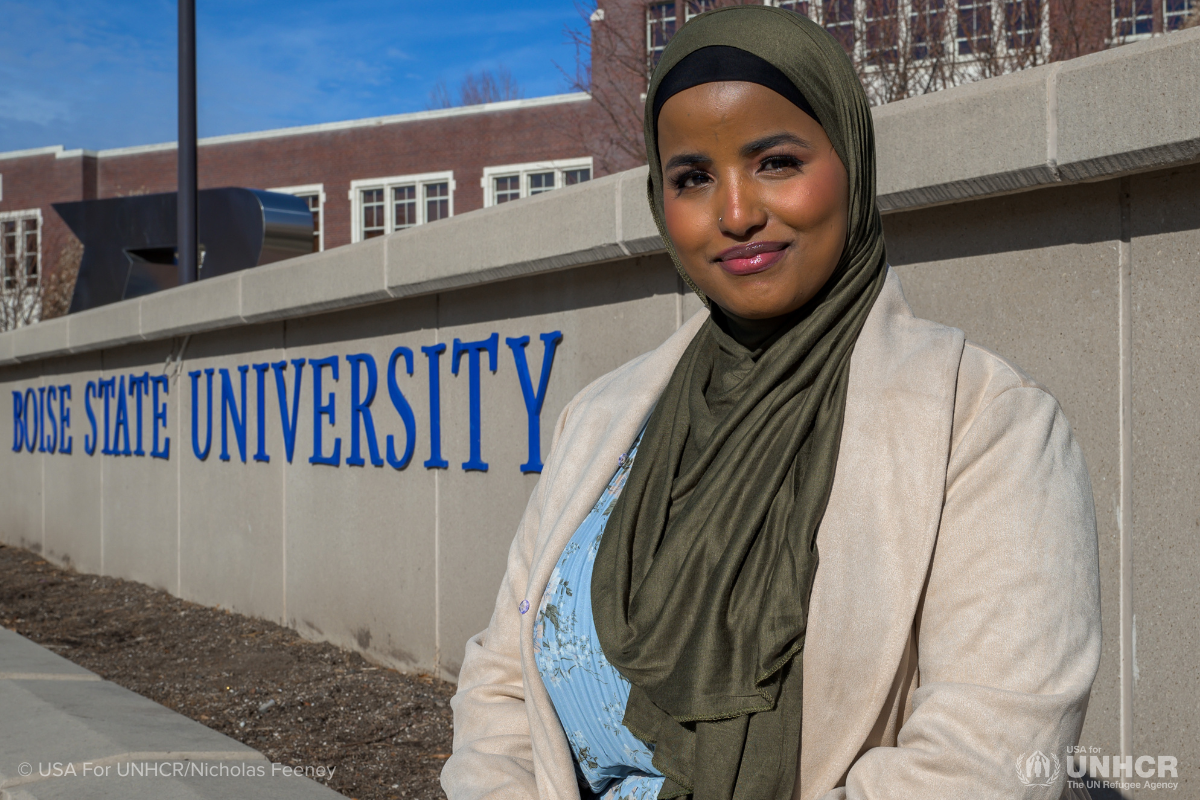
Now as a graduate student at the University of Minnesota’s Humphrey School of Public Affairs, Halima is focused on development practices with a special interest in women’s economic empowerment in east Africa. Halima was also recently accepted as a Clinton Global Initiative scholar where she’ll continue to explore her academic and professional interests.
No matter what path Halima’s professional career takes, representation, equity and empowerment will be central. She approaches these issues not only as someone that has confronted institutions and systems that have not always been welcoming to refugees or minorities but also as someone who has broken through and is determined to hold that door open for others.
“I know that there are many refugee women in the United States who have degrees, who have the skills, who have the experience, but once they arrive here, [those skills] have no value,” Halima shares.
“Refugees are very resilient people, very motivated, and they need the right community to support them along their paths… I am determined to use my education to make a meaningful difference in the world.”
How can you help?
USA for UNHCR, the UN Refugee Agency, supports the full journey of refugees. Not only do our donors help refugees in their greatest time of need, but their support builds awareness for resettled refugees living in the U.S. Former refugees like Halima have woven themselves into the fabric of American society and are making lasting contributions to their communities. With your help, more refugees will have the opportunity to build a peaceful life and have a chance for a brighter future.
